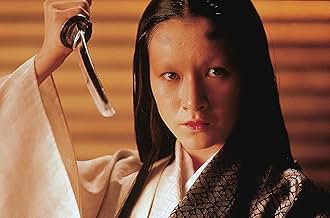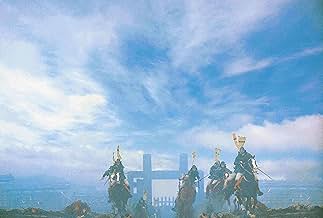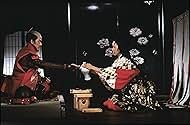Ran takes viewers to a place they would rather not explore on their own. In a world of cruelty, Kurasowa has shown how the moments within the horror can have beauty. Shakespeare wrote King Lear as a mirror on the human condition. We do not have to be kings and princesses to identify with the father's desire for the well being of his children, even if his own life was one of cruelty and pain. We see this theme throughout great literature and film. What Ran has done is to provide the viewer with many small moments within the pain to realize the beauty. Even the moment of epiphany for Hidetora, when his actions achieve his madness, is one of surpassing beauty. As the storm rages outside the small house of the prince he blinded, whose parents he killed, whose sister he forcibly married off, the simple sounds of the flute provide an intense focus on the here and now. It is at this moment when Hidetora recognizes that he himself sowed the seeds of his own destruction. There is no dialogue, no swashbuckling, just the terrible beauty of the music. As with many of Kurasowa's films, despite their epic scope, it is the small paint strokes that make up the master's canvas.























